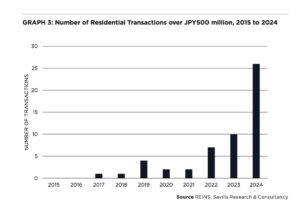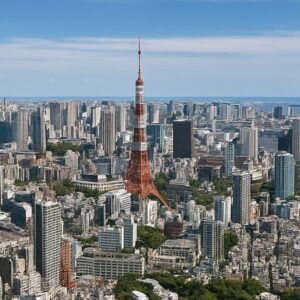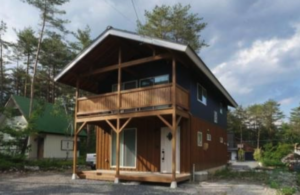
Tokyo’s Ultra-Luxury Residential Market in 2025: Rising Demand, Limited Supply, and Future Outlook
Introduction
Tokyo’s ultra-luxury residential market has quietly emerged as a major global player. In 2025, the city is increasingly drawing the attention of ultra-high-net-worth individuals (UHNWIs) worldwide. A confluence of limited supply, strong demand, economic stability, and cultural prestige is reshaping Tokyo into a preferred destination for wealth preservation and lifestyle investment.
Current State of Tokyo’s Ultra-Luxury Residential Market
Definition and Price Benchmarks Ultra-luxury residences in Tokyo typically start from JPY 1 billion (U$6.7 million) and command prices of over
JPY 12 million per square meter. Properties such as Aman Residences, Toranomon Hills, and MARQ Omotesando ONE exemplify this prime residential market, with record-breaking sales and rising benchmarks.
Characteristics of Ultra-Luxury Properties Located in Aoyama, Azabu, and Roppongi, these residences offer unmatched security, concierge services, privacy, and architectural excellence.

Screenshot
Read more













